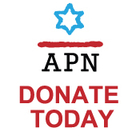 Growing up, Passover was my favorite holiday. I loved the Passover story about the Jews
being saved from the evil Pharaoh in Egypt. I loved the miracle of the parting of the sea and survival
crossing the desert (as a kid raised in the Arizona desert, I felt a special kinship with those early
Israelites). I loved the Seder — especially the part where we dipped our fingers in the wine as we
enumerated each plague. And I of course loved the food, particularly my mother’s matzo balls (sinkers, not
floaters) and the red horseradish that always made me sniffle and sneeze — and which, invariably, somebody
spilled on the tablecloth to leave a permanent beet juice stain.
Growing up, Passover was my favorite holiday. I loved the Passover story about the Jews
being saved from the evil Pharaoh in Egypt. I loved the miracle of the parting of the sea and survival
crossing the desert (as a kid raised in the Arizona desert, I felt a special kinship with those early
Israelites). I loved the Seder — especially the part where we dipped our fingers in the wine as we
enumerated each plague. And I of course loved the food, particularly my mother’s matzo balls (sinkers, not
floaters) and the red horseradish that always made me sniffle and sneeze — and which, invariably, somebody
spilled on the tablecloth to leave a permanent beet juice stain.
As a child raised in a Reform Jewish family, I was taught from a young age that thinking critically (and being intellectually honest) is a core Jewish value. I was also raised not just to love the holidays, but to love Israel — and to see supporting and defending Israel against all criticism as a component of my Jewish identity.
The lesson to think critically and apply intellectual honesty guided me as I grew older and found myself re-considering my feelings about the Passover story. I recall the first time it occurred to me to be troubled by the fact it was not only Jews who were slaves and who suffered. And I remembered the first time I really thought about the fact that the Pharaoh’s soldiers who drowned when the sea ceased its parting were in their own way victims.

In the late 1990s, while living in Jerusalem and spending time in the West Bank and Gaza, I discovered first-hand a painful reality: Defending Israel against all criticism and simultaneously thinking critically and applying intellectual honesty were mutually exclusive. Over the next two years spent mainly in the West Bank and East Jerusalem, I encountered the harsh realities of occupation, settlements, abuses of human rights, racism, and discrimination. The experience shattered my illusions about Israel and in the process, fractured the foundation of my Jewish identity.
Re-building that identity was the work of years, as I wrestled with what it meant to me to be a Jew who both loves Israel and has deep concerns about its actions and policies.

Today I have no questions about my Jewish identity or what it means with respect to Israel. I am a proud Jew who unapologetically loves Israel. I am also a Jew who out of love of Israel refuses to stand by passively — either out of anger, indifference, or exhaustion — and allow extremists to hijack this amazing nation and its future. In the same way today I love Passover, but differently than I did as a child.
Both my sense of self as a Jew and my love for Israel are far more complex and mature than they were when I was child, but they are also far more profound. The credit for this goes, in large part, to Peace Now and Americans for Peace Now. Working actively for Israeli-Palestinian and Israeli-Arab peace has enabled me to see and embrace all that is good in Israel.
Israel is an amazing nation — full of energy, creativity, innovation, a good dose of chutzpah, and most important for me, home to patriotic citizens who refuse to stop fighting for Israel’s future. Like me, they are fighting for a progressive, democratic, tolerant Israel. It is in the company of such Israelis — my colleagues in the Israeli Peace Now movement — that I have witnessed not only the most troubling things, but also the most inspiring. Their courage humbles me. Their commitment drives my own.
Our work at APN, and Peace Now’s work in Israel, can and does make a difference. Back in the 1980s and 1990s, Peace Now and APN were lonely voices making the case for peace — taking what were then radioactive positions like supporting the creation of a Palestinian state in the West Bank and Gaza Strip and supporting two capitals in Jerusalem. Today, these and other APN positions —- including our view that the occupation and settlements are anathema to Israel’s security, its international standing, its economic health, and the health of its society — are widely embraced in Israel and around the world. Today, the two-state solution has become accepted as the consensus, reasonable approach to ending this conflict. Today, these positions are embraced by Israeli national security leaders like all six living former leaders of the Shin Bet, who spoke out candidly in the Oscar-nominated film The Gatekeepers. Indeed, today, when Israeli national security leaders like them talk about the Palestinians and Israel’s best interests — or people like former Israeli Prime Minister Ehud Olmert or Tzippi Livni — many incredulously comment that they sound like Peace Now.
To be sure, some people — both in Israel and the U.S. — say they support two-states, but they don’t seem to mean it. For them, negotiations seem to just be cover to keep building settlements, perhaps in the hopes that soon the two-state solution will be dead. Others seem to believe that there can be an agreement based on a Palestinian “state” that is geographically Balkanized, with no connection to East Jerusalem and no real sovereignty. This doesn’t pass the political laugh test, let alone the test of being politically and economically viable.
The trend of Israeli governments talking peace while actively undermining it on the ground — bolstered by a growing right-wing trend inside Israel that openly opposes the two-state solution and supports settlements — continues today. This is the reason why APN and Peace Now have taken a courageous step: We have begun actively calling for boycotting settlements and the occupation.
We did not undertake the call lightly —- we know that the whole idea of boycotting anything associated with Israel is painful.
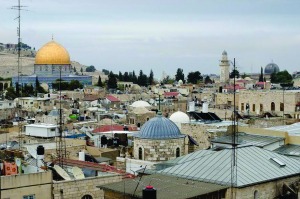
We also know that for decades, cognitive dissonance has reigned in Israel. Most Israelis support peace and are ready to cede land to achieve it. Successive Israeli governments have committed themselves to pursuing peace. All the while, settlers and their supporters have worked feverishly to establish facts on the ground to prevent peace and a two-state solution. Their efforts have flourished in the context of government support.
Today we say without apology: boycott the settlements and the occupation. Settlements aren’t Israel. Boycotting settlements isn’t boycotting Israel (which explains why the global BDS movement finds settlement boycotts problematic). Rather, boycotting settlements and the occupation is a means of breaking through the cognitive dissonance. It tells Israelis and their leaders that continued settlement expansion and support for peace are mutually exclusive, and that there is a price for handing their nation’s future to ideologues who value land and settlements over peace, security, and Israel’s standing in the world.
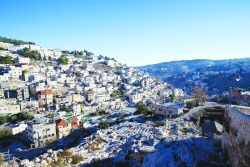
Today I’m asking you to join me in fighting for Israel’s future. Support the work of Americans for Peace Now and our colleagues in the Peace Now movement. All of us —- Jews and non-Jews alike who care about Israel and cannot close our eyes to what we know is wrong — must continue to fight for a better, different future for Israel.
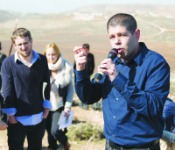
Defend Israel and fight for peace by helping us spread the word — about settlements, about the realistic requirements for a two-state solution, about the need for courageous U.S. leadership to achieve peace, about settlement boycotts, and about how the occupation is harming Israel at every level. Help people understand that Israeli government policies which promote settlements and deepen the occupation, more than any other factor, feed “delegitimization” of Israel.
Ask us and we’ll be happy to send this letter to someone you know. Let us help you organize a conference call with members of your synagogue or place of worship. Work with us to bring speakers to your community. Join our Action Network, so you can help amplify calls to your elected officials to support policies that are consistent with peace, security, and the two-state solution, as well as with U.S. national interests.
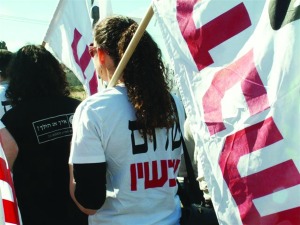
And please, send a tax-deductible contribution. Your support enables Peace Now and APN to do everything we do. It supports us in our efforts, in Israel and the U.S., to marshal support for positions and actions that advance the cause of peace and the two-state solution. It empowers us to work through education, activism and advocacy at all levels — from the grassroots to policymakers. It enables us to be beacons supporting what is right, without concern for what is politically easier or organizationally advantageous — a role Peace Now and APN have proudly played, since the days when merely talking to the Palestinians crossed a red line.
It is through the work of APN that I dispelled another kind of cognitive dissonance — one that is, I suspect, familiar to thoughtful Americans who love Israel but also cannot close their eyes to what they know is wrong.
I am grateful to be part of APN and working for the cause of peace and security for Israel. Through our work, I have learned that strength and confidence — in who we are and what we believe — comes from standing up for what is right. Join me in standing up for a better future for Israel, by supporting our work. Please contribute.
L'Shalom
Lara Friedman
Director of Policy and Government Relations
P.S. I am sometimes asked how I can keep working for Israeli-Palestinian peace, given all the disappointments we have experienced and what feels like a daily diet of bad news. The fact is, I feel privileged to do this work, to fight for what is right and good for Israel. It would be immoral to give up.
 Lara Friedman is the Director of Policy and Government Relations for Americans for
Peace Now (APN), the Washington-headquartered sister organization of the Israeli Peace Now movement (Shalom
Achshav). As a leading authority on U.S. foreign policy in the Middle East, Israeli settlements policy, and
Jerusalem, Friedman frequently meets and briefs Members of Congress, U.S. Administration officials, foreign
diplomats, and other members of the foreign policy community. She is a trusted resource for journalists and
policymakers, and regularly publishes opinion and analysis pieces in the U.S. and Israeli press. A former
Foreign Service Officer, Friedman served in Jerusalem, Washington, Tunis, and Beirut (and briefly in
Khartoum), and speaks French, Spanish and Arabic.
Lara Friedman is the Director of Policy and Government Relations for Americans for
Peace Now (APN), the Washington-headquartered sister organization of the Israeli Peace Now movement (Shalom
Achshav). As a leading authority on U.S. foreign policy in the Middle East, Israeli settlements policy, and
Jerusalem, Friedman frequently meets and briefs Members of Congress, U.S. Administration officials, foreign
diplomats, and other members of the foreign policy community. She is a trusted resource for journalists and
policymakers, and regularly publishes opinion and analysis pieces in the U.S. and Israeli press. A former
Foreign Service Officer, Friedman served in Jerusalem, Washington, Tunis, and Beirut (and briefly in
Khartoum), and speaks French, Spanish and Arabic.

